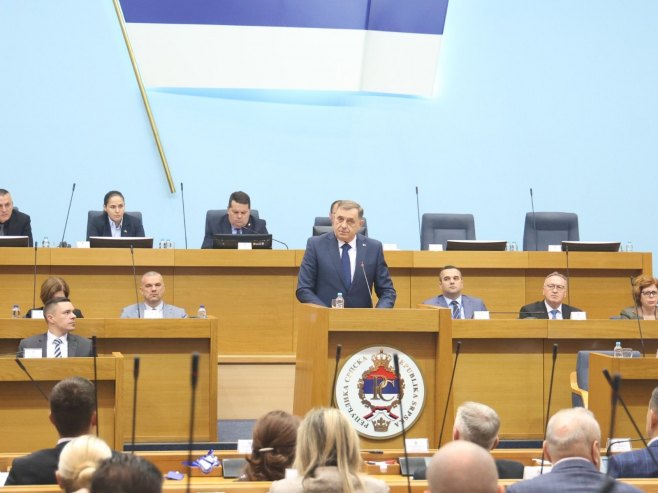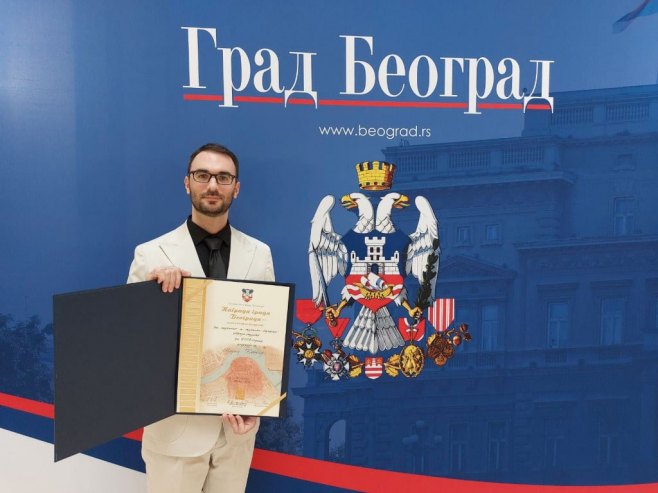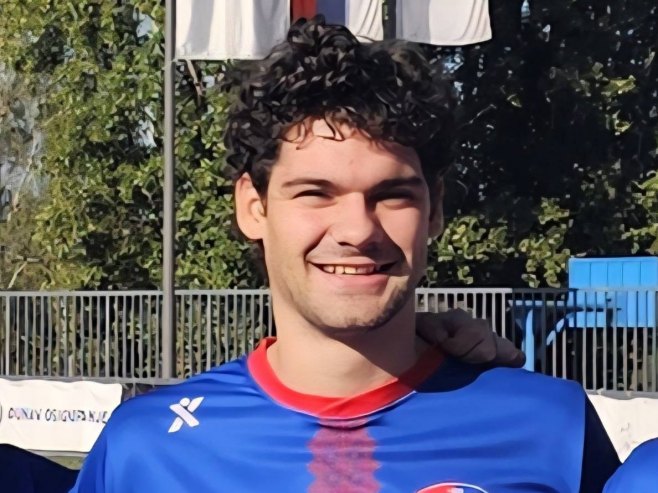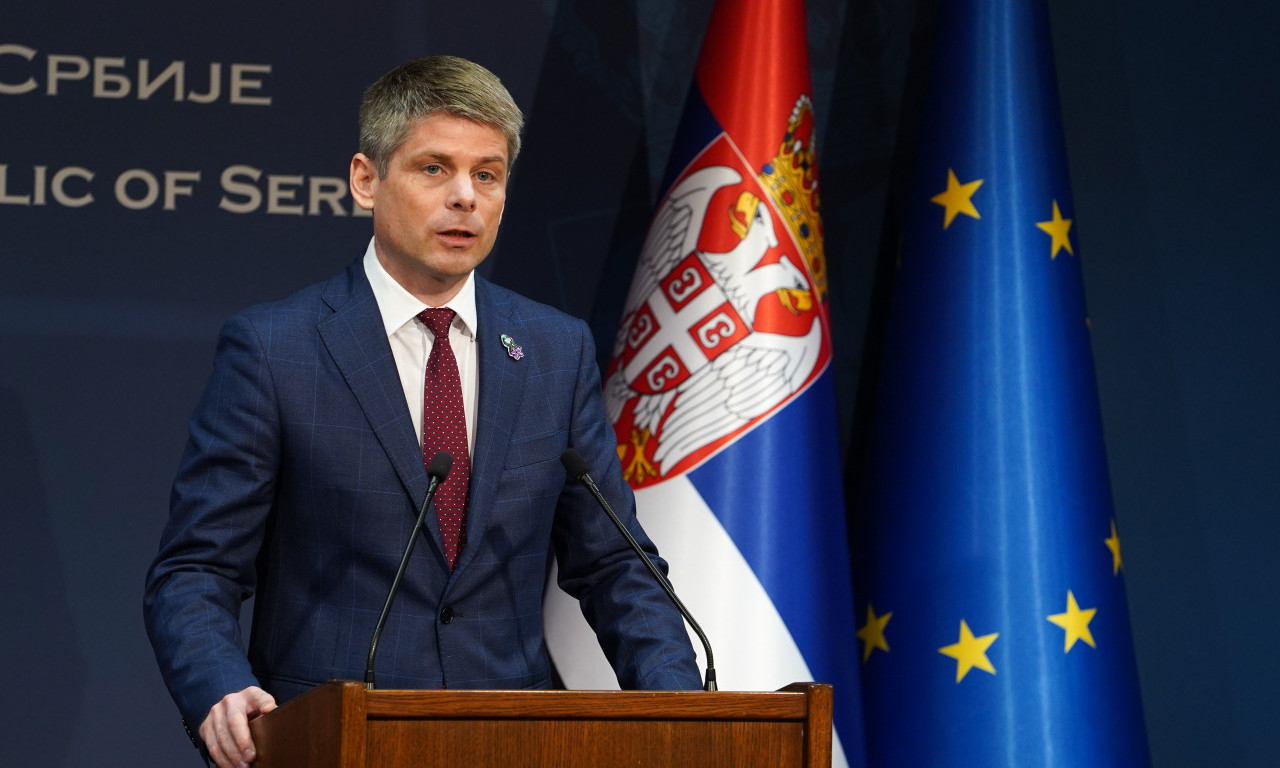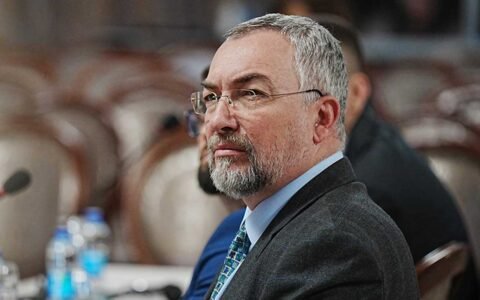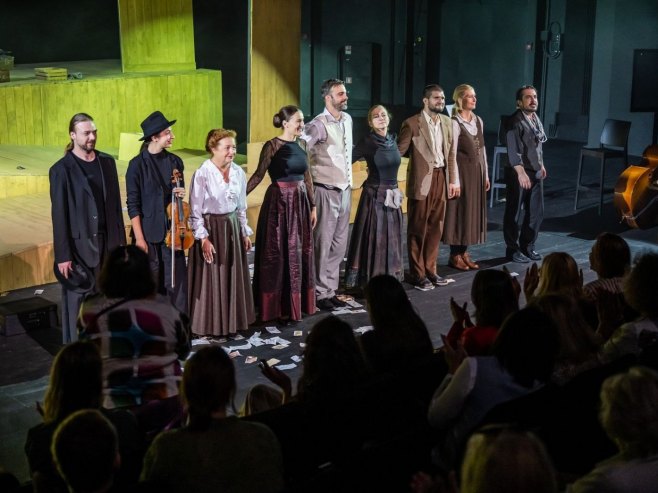The address of Republika Srpska President Milorad Dodik in the National Assembly, marking the thirtieth anniversary of the signing of the Dayton Peace Agreement, is regarded by political and diplomatic experts as one of his most balanced, objective, and impactful speeches delivered anywhere.
The calls for dialogue, the outstretched hand to the entire world—both to friends and those less inclined toward Republika Srpska—may not receive an immediate response, but experts are convinced the response will come.
Brief and clear, the president of Republika Srpska delivered serious messages from the parliamentary podium. According to university professor Drago Vuković, they were sent on four levels: first, to the UN Security Council to confirm or reject the legitimacy of Christian Schmidt, the main figure of the crisis in BiH; second, to global political actors, both allies and critics of Republika Srpska; third, a call for dialogue to the contracting party—the Federation of BiH; and fourth, an appeal for unity among political actors in Republika Srpska.
“These are very important and serious messages. The question is whether they will reach all relevant political actors and what their response will be. I’m not optimistic that positive reactions will come quickly, but we did what we were supposed to do,” said Vuković, a professor at the University of East Sarajevo.
The key word of Dodik’s address, notes Professor Radomir Lukić of the Faculty of Law, was “invitation”—particularly the call to foreign centers of power: allow the peoples of BiH and their political representatives to act as political adults. The invitation to internal dialogue is, according to him, a call for a return to decentralization and the only viable path for a functional BiH.
“This is one of Dodik’s most balanced public appearances since I’ve followed him in politics, and it entirely fits the moment. His assessments are measured and in the interest not only of Republika Srpska and the Serb people, but also of all three constituent peoples and the citizens of Republika Srpska,” said Lukić.
In the year marking the 30th anniversary of the Dayton Agreement, it was necessary to point out that the agreement has been entirely undermined, stated former diplomat Vladislav Jovanović. He emphasized that everything culminated in a quasi-judicial action against the leadership of Republika Srpska. Therefore, Dodik’s public appeal to the other side and the international community to resolve the crisis through dialogue is vital.
“It was a responsible statesmanlike call with full awareness of the importance of preserving the Dayton Peace Agreement in its original form, and an appeal to all parties to act responsibly and restore the trust once established by Dayton,” Jovanović stated.
Professor Lukić reiterated that internal dialogue without foreign intervention is the only correct path. The same goes for Dayton—modernization is possible but only through agreement between the contracting parties: the two entities and the three peoples.
“Modernization of the Dayton Peace Agreement essentially means modernization of its implementation—that is, applying what is written in it. It entails significant decentralization and the alignment of BiH institutions with their constitutional limits,” Lukić added.
The absence of the opposition from the assembly during Dodik’s call for unity in Republika Srpska is a political loss, believes Professor Vuković. As someone who studies political processes, he said he is deeply concerned about the opposition’s decision.
“If a small group had walked out, it wouldn’t be a big deal, but if the SDS—one of the political creators of Republika Srpska and Dayton-era BiH—walked out during the commemoration of the 30th anniversary, it raises questions about the state of the opposition. That is a very bad indicator of unity, which we desperately need,” Vuković said.
And it was important to state the truth—that Republika Srpska insists on consistent implementation of the Dayton Agreement; that Serbs do not wish to destroy, but to preserve peace; that they recognize BiH, while also defending their Republika Srpska in accordance with international law. And that, experts agree, is what Dodik successfully conveyed in his address.
Source: RTRS



